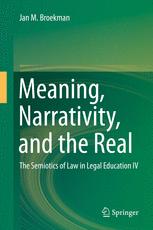

Most ebook files are in PDF format, so you can easily read them using various software such as Foxit Reader or directly on the Google Chrome browser.
Some ebook files are released by publishers in other formats such as .awz, .mobi, .epub, .fb2, etc. You may need to install specific software to read these formats on mobile/PC, such as Calibre.
Please read the tutorial at this link: https://ebookbell.com/faq
We offer FREE conversion to the popular formats you request; however, this may take some time. Therefore, right after payment, please email us, and we will try to provide the service as quickly as possible.
For some exceptional file formats or broken links (if any), please refrain from opening any disputes. Instead, email us first, and we will try to assist within a maximum of 6 hours.
EbookBell Team

0.0
0 reviewsThis book examines the concept of meaning and our general understanding of reality in a legal and philosophical context. Starting from the premise that meaning is a matter of linguistic and other forms of articulation, it considers the inherent philosophical consequences. Part I presents Klages’, Derrida’s, Von Hofmannsthal’s and Wittgenstein’s explorations of silence as a source of articulation and meaning. Debates about 20th century psychologism gave the attitude concept a pivotal role; it illustrates the importance of the discovery that a word is globally qualified as ‘the basic unit of language’. This is mirrored in the fact that we understand reality as a matter of particles and thus interpret the real as a component of an all-embracing ‘particle story’. Each chapter of the book focuses on an aspect of legal semiotics related to the chapter’s theme: for instance on the meaning of a Judge’s ‘Saying for Law’, on law students training in varying attitudes or on the ties between law and language.